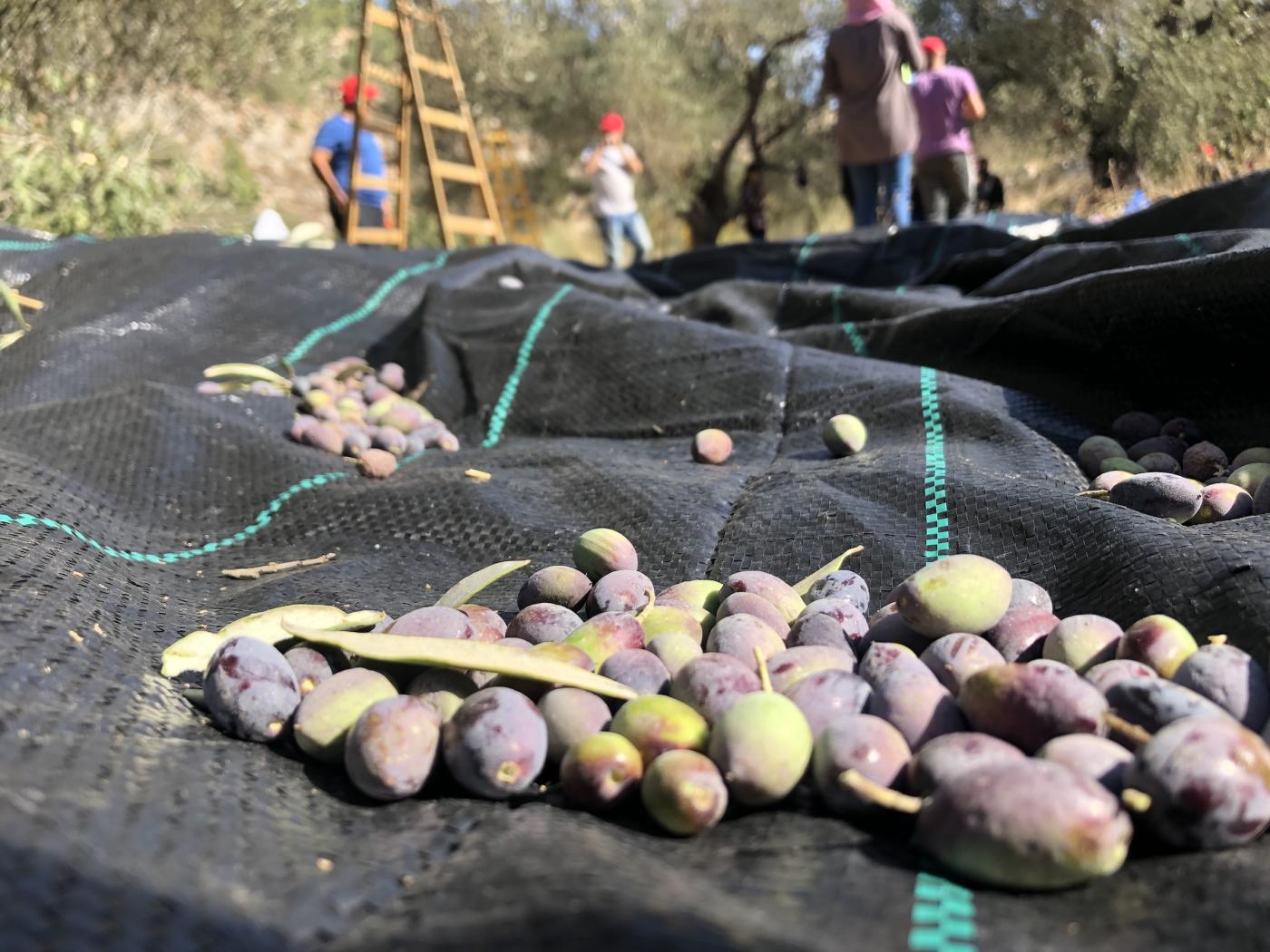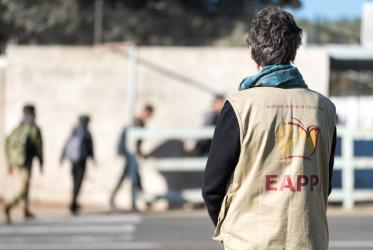This article is part of a series produced for the World Council of Churches olive harvest initiative, a global effort in 2020 to highlight the spiritual, economic and cultural importance of the olive harvest for Palestinian communities, and to witness to the impact of the occupation.
By Anne Casparsson
Olive farming should be a peaceful activity, but for many Palestinian farmers the harvest season is a time of tension, violent attacks, and destruction of precious olive trees. Farmers in the West Bank of the occupied Palestinian territories face a barrage of such threats from nearby Israeli settlers.
Yet the farmers have friends—some in the form of organizations daring to help, even at the risk of their own safety.
Rabbis for Human Rights, Al Haq and St Yves are three organizations working for the rights of the olive farmers. They come from different perspectives and faiths, but have a common goal: justice, peace, human dignity, and the fruits of hard work.
“Even if the harvest season is in the fall, the work for the farmers continues the whole year. And the violence towards them does not stop after the harvest,” explains Rabbi Nava Hefetz, educational director for Rabbis for Human Rights.
Part of her work is protecting Palestinian farmers from settlers’ attacks and helping them reach their lands for the annual olive harvest.
The Palestinian organization Al Haq, with a big network of farmers, is a non-governmental human rights organization working for legal rights in the occupied Palestinian territory. Al Haq documents violations of the individual and collective rights of Palestinians.
“Recently an 86-year-old farmer was beaten by a soldier, who claimed that the man should have a permit to access and cultivate his land. But because he owned the land, he did not bring the papers,” says Hisham Sharabati, an Al Haq field worker.
A few days after the incident, he finally managed to report what had happened, just as he has many times before. But he doesn’t feel that anyone is really listening.
“This gives an example of the system and the enforcement of law. It is a game they are playing with people. In most cases, no one gets accused of anything. It makes Palestinians feel that it is no use complaining,” says Sharabati.
Al Haq is working closely with the Catholic Human Rights organization St Yves, with a mission to provide legal aid and assistance to the poor, oppressed and marginalized of the Holy Land without regard to religion.
“We try to help many farmers with access to their land, who are often affected by the wall, living separated from their fields,” says St Yves director Raffoul Rofa.
In East Jerusalem, St Yves works with cases regarding residential rights, healthcare and helping the disabled to be recognized by society. The organization also gives legal help to people who have had their houses demolished.
Rofa believes that St Yves’s work has a clear impact. Currently St Yves protects structures in East Jerusalem and on the West Bank from being demolished. St Yves regularly meets Palestinians seeking legal assistance—people who have lost their hope and dignity.
“This work can be very frustrating and it is difficult. But it is very important to keep up the high spirit, despite the difficulties and obstacles,” said Rofa. “The people we meet are people fighting for their rights, and are not giving up.”
Learn more about the olive harvest initiative
*Anne Casparsson is a freelance journalist who focuses on justice and peace.








